A. Q. M. Sazzad Sayyed
A Novel Multi-Stage Training Approach for Human Activity Recognition from Multimodal Wearable Sensor Data Using Deep Neural Network
Jan 03, 2021
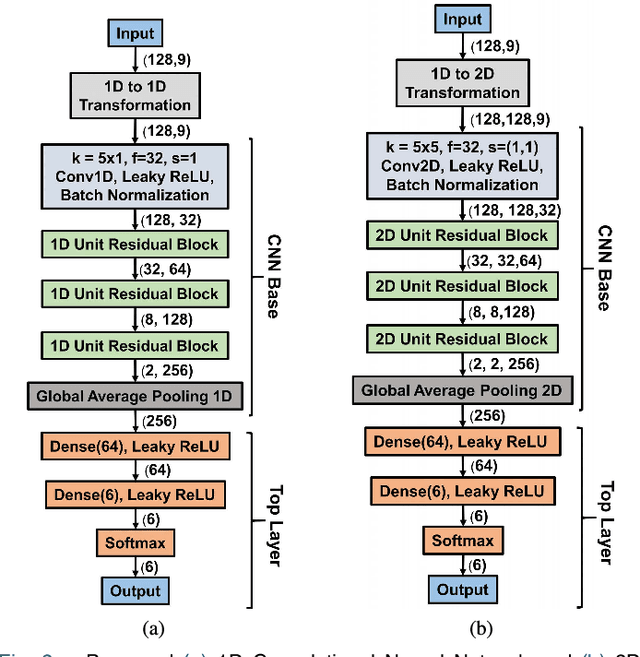
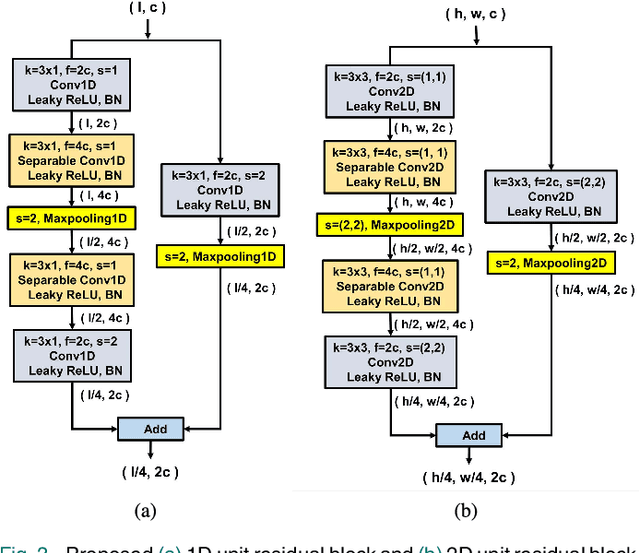
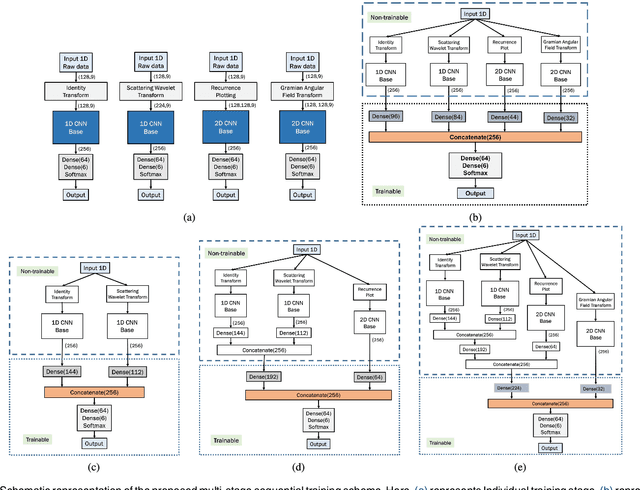
Abstract:Deep neural network is an effective choice to automatically recognize human actions utilizing data from various wearable sensors. These networks automate the process of feature extraction relying completely on data. However, various noises in time series data with complex inter-modal relationships among sensors make this process more complicated. In this paper, we have proposed a novel multi-stage training approach that increases diversity in this feature extraction process to make accurate recognition of actions by combining varieties of features extracted from diverse perspectives. Initially, instead of using single type of transformation, numerous transformations are employed on time series data to obtain variegated representations of the features encoded in raw data. An efficient deep CNN architecture is proposed that can be individually trained to extract features from different transformed spaces. Later, these CNN feature extractors are merged into an optimal architecture finely tuned for optimizing diversified extracted features through a combined training stage or multiple sequential training stages. This approach offers the opportunity to explore the encoded features in raw sensor data utilizing multifarious observation windows with immense scope for efficient selection of features for final convergence. Extensive experimentations have been carried out in three publicly available datasets that provide outstanding performance consistently with average five-fold cross-validation accuracy of 99.29% on UCI HAR database, 99.02% on USC HAR database, and 97.21% on SKODA database outperforming other state-of-the-art approaches.
* 12 Pages, 7 Figures. This article has been published in IEEE Sensors Journal
CovMUNET: A Multiple Loss Approach towards Detection of COVID-19 from Chest X-ray
Aug 29, 2020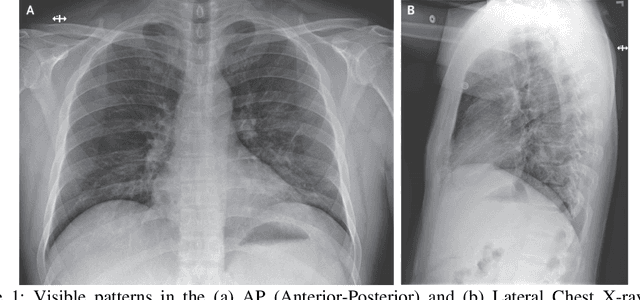
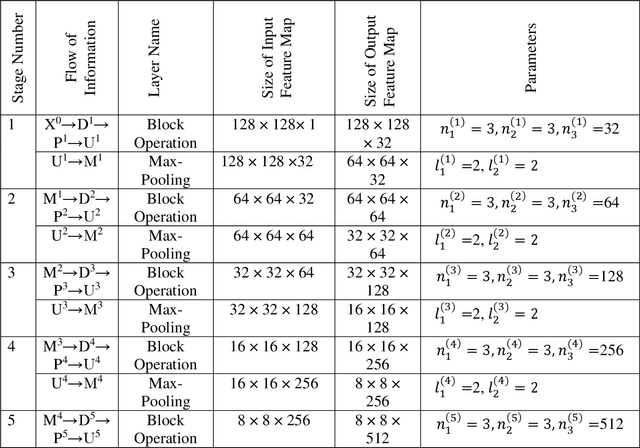
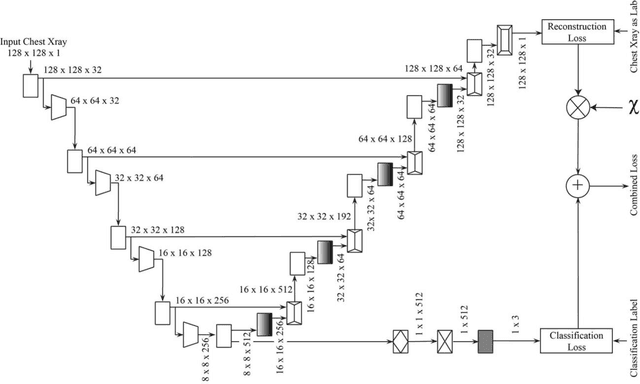
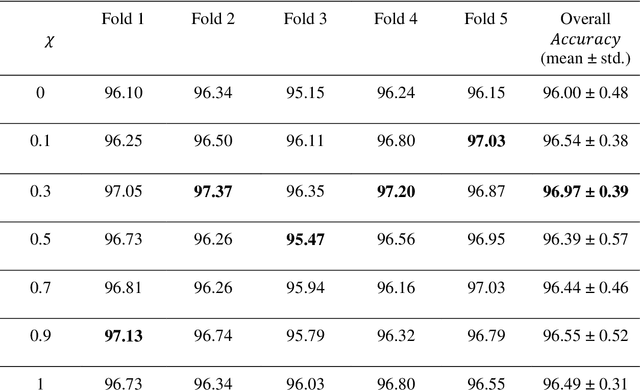
Abstract:The recent outbreak of COVID-19 has halted the whole world, bringing a devastating effect on public health, global economy, and educational systems. As the vaccine of the virus is still not available, the most effective way to combat the virus is testing and social distancing. Among all other detection techniques, the Chest X-ray (CXR) based method can be a good solution for its simplicity, rapidity, cost, efficiency, and accessibility. In this paper, we propose CovMUNET, which is a multiple loss deep neural network approach to detect COVID-19 cases from CXR images. Extensive experiments are performed to ensure the robustness of the proposed algorithm and the performance is evaluated in terms of precision, recall, accuracy, and F1-score. The proposed method outperforms the state-of-the-art approaches with an accuracy of 96.97% for 3-class classification (COVID-19 vs normal vs pneumonia) and 99.41% for 2-class classification (COVID vs non-COVID). The proposed neural architecture also successfully detects the abnormality in CXR images.
 Add to Chrome
Add to Chrome Add to Firefox
Add to Firefox Add to Edge
Add to Edge